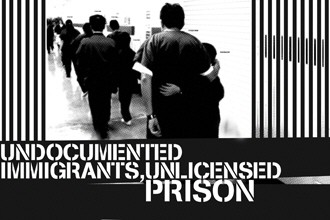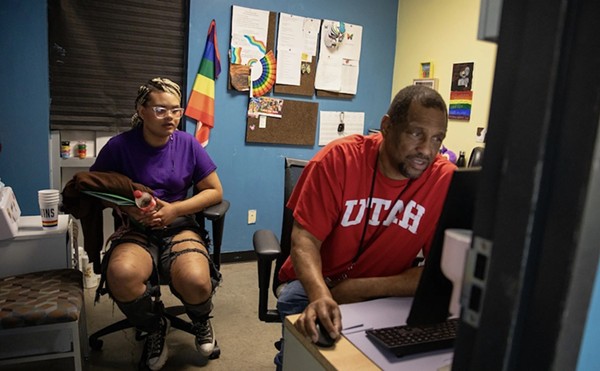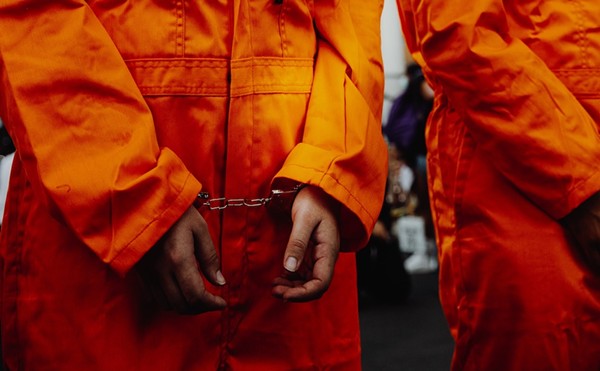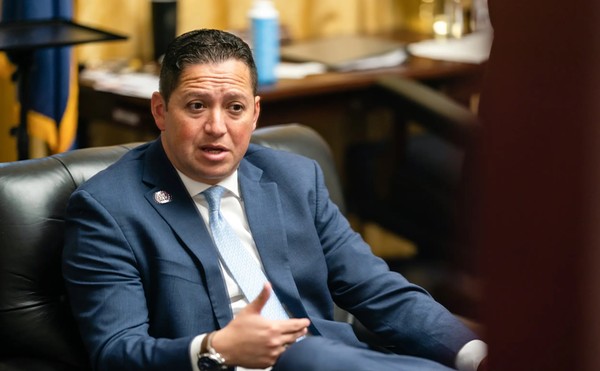Four months ago, U.S. Immigrations and Customs Enforcement and its private contractor, Corrections Corporation of America, attempted to dress up the converted medium-security prison in plastic trees and rainbow murals for the family-detention center’s first and only media tour since the facility opened a year ago. Now, citing “pending litigation,” ICE has decided that secrecy is the better policy, and has informed the media that it will no longer disclose information about the facility, including population numbers.
The access restriction doesn’t only apply to the media. United Nations Special Rapporteur on the Human Rights of Migrants Jorge Bustamante was denied entrance to the Hutto facility as well as a detention center in Monmouth County, New Jersey, during an 18-day U.S. tour this month.
“I expressed an interest to visit detention centers in the United States. `The U.S. State Department` responded, programming the visit of three detention centers,” said Bustamante, who was Mexico’s nominee for the Nobel Peace Prize in 2006. “Then they all of a sudden cancelled the visit that had been approved for the Hutto detention center and the New Jersey detention center. And so I requested an explanation of that decision to the Ambassador of the United States in Geneva, and no response.”
The explanations ICE gave the media were contradictory: The Associated Press reported first ICE’s claim that the United Nations had not given them proper notice. Now, Richard Rocha, who works in ICE’s public-affairs department, says it was due to the same “pending litigation.”
The lawsuit in question was filed by the American Civil Liberties Union in federal court in March on behalf of 10 children between the ages of three and 16, from six countries. The suit claims a wide array of civil-rights violations at the Hutto facility and a disregard for the 1996 Flores v. Reno settlement, which established rigid and binding requirements for when, where, and how the U.S. government (at the time the Immigration and Naturalization Service, which was restructured in 2003 as ICE under the Department of Homeland Security) may detain non-criminal immigrant minors.
“Almost all of our clients are asylum-seekers, which means their parents fled their countries and in most cases have been found by a trained asylum officer to have a credible fear of persecution if they are returned, which is why they’re in asylum proceedings and not being processed by expedited removal,” said Lisa Graybill, legal director for ACLU of Texas.
Since the asylum process is often slow, this means families could languish at Hutto indefinitely, Graybill said, unless they are granted parole. Although they were initially denied parole, all 10 original ACLU plaintiffs were released following the lawsuit. However, it was all too easy, Graybill said, for the ACLU to add more defendants to the suit: New children are arriving at the facility daily.
On April 9, U.S. District Court Judge Sam Sparks issued an order for an expedited trial in August, declaring that the ACLU was “highly likely” to win their case. Under Flores, ICE may not house juveniles in a prison setting unless they have committed a crime or pose a danger to themselves or others; policy should favor release whenever possible, but if “flight-risk” minors must be detained it may only be in a facility “licensed by an appropriate State agency to provide residential, group, or foster-care services.” Currently Hutto is not licensed as a care facility by any Texas agency.
ICE assigned the licensing responsibilities to CCA, the U.S.’s largest private prison operator. CCA’s inexperience in residential programs is evident in documents obtained by the Current that show in March 2006 CCA was hoping to receive licensing from the Texas Juvenile Probation Commission and the Texas Youth Commission. Both agencies determined that Hutto was outside their jurisdiction because the detained juveniles had not committed criminal offenses and were foreign nationals. Only as the facility was set to open in May 2006 did CCA finally file paperwork with the proper agency, the Texas Department of Family and Protective Services. However, instead of applying for a license, CCA requested and received a licensing exemption, which Sparks pointed out does not satisfy Flores.
“The Court finds it inexplicable that Defendants have spent untold amounts of time, effort, and taxpayer dollars to establish the Hutto family-detention program, knowing all the while that Flores is still in effect, without either promulgating final regulations or going back to the Flores court for clarification and/or modification of the requirements,” Sparks wrote. “Nevertheless, the fact is that the Defendants have not sought any such clarification or modifications and clearly have no intent to do so.”
Following Sparks’s order (and little more than a week before the U.N. Rapporteur’s U.S. visit was to begin), the U.S. Depart-ment of Homeland Security seized back the reins and began attempts to undo FPS’s licensing exemption. According to emails obtained by the Current, as of April 20, ICE officials were setting up a “walkthrough” for FPS. Neither ICE nor FPS responding to queries about the proposed visit.
Despite being barred from the facility, Rapporteur Bustamante interviewed former detainees and issued a statement on May 17. In addition to statements on human-rights violations, such as substandard prison conditions, he wrote that “there is no centralized system in the United States to obtain information regarding those arrested by immigration officials or where individuals are detained.”
His full report, including recommendations, will be presented to the U.N. later this summer.
| Más Media
Links: American Civil Liberties Union’s Hutto Page The ACLU website includes legal documents, family profiles, and podcasts about the Hutto Family Residential Center. Aclu.org/hutto
Locking Up Family Values: The Detention of Immigrant Families A 72-page report on human-rights abuses at Hutto, compiled by the Women’s Commission for Refugee Women and Children.
Free the Children Myspace Page & Blog “No Child Left Behind Bars” buttons are available at this page maintained by local activist Bohica Babe. Myspace.com/free_the_children Events Hutto Vigil IX 11am, June 9 The Free The Children Coalition, César E. Chávez March for Justice, Texas Indigenous Council, and League of United Latin American Citizens are organizing the ninth vigil/protest with Del Rio immigrants-rights activist Jay J. Johnson-Castro. Contact: Antonio Diaz, 396-9805, or Christina Rod, 725-5064
Free the Children: Texas Freedom Bus Campaign June 23 The Labor Council for Latin American Advancement, LULAC, Fuerza Unida, César E. Chávez March for Justice, Amnesty International, Children and Families for Human Treatment Alliance, and NAACP are organizing a protest to coincide with International Refugees Day Contact: Jaime Martinez, 842-9339 |



















